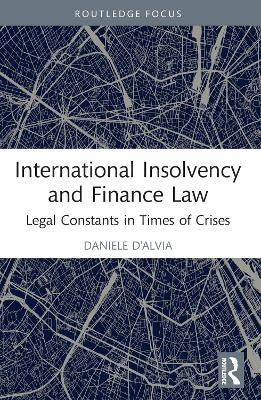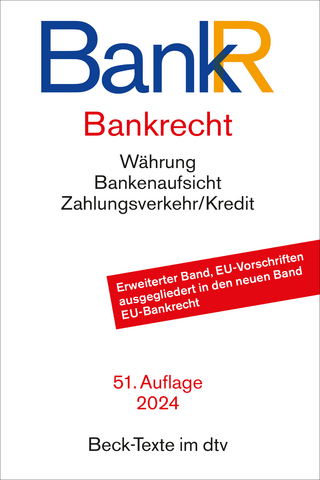
International Insolvency and Finance Law
Routledge (Verlag)
978-1-032-24379-5 (ISBN)
Focusing on the Global Financial Crisis 2007-2010 and the new emerging Covid-19 crisis in 2020, this book examines the discourse on risk and uncertainty in the markets through the lens of financial crises. Such crises represent a failure of the law to regulate, and constitute the basis through which a new theory of legal constants can be introduced in comparative law. Crisis impose a dramatic reformulation of the law, the Covid-19 confirms this trend, and new out-of-law instances are appearing beyond a paternalistic approach of direct State regulation. Restructuring procedures are playing a vital role in businesses’ survival, and new out-of-law mechanisms such as moratorium agreements and private workouts have become essential to preserve businesses. It is clear that the role of the law has completely changed, and this book argues that constants outside of the law are new ways to promote an “uncodified-codification” of the law. The case for uncodified uncertainty in the Covid-19 crisis is a primary example of how no codification process can ignore the importance of out-of-law instances in the act of making law. This book explores how this approach influences the harmonisation process of international economic law between national insolvency regimes and international agreed frameworks, demonstrating the role of comparative law in formulating legal constants using Covid-19 and the complexity of modern financial markets as the criterion to introduce the reader to this new theory, which claims a new role for comparative law in policy making processes within the framework of international economic law.
Daniele D’Alvia is a Teaching Fellow in Banking and Finance Law at CCLS – Queen Mary University of London, UK, an Associate Research Fellow at IALS, and the Module Convener of Comparative Law at Birkbeck College, University of London, UK. He was the module convener of International Finance and Company Law at the University of Hertfordshire, UK, and a visiting scholar and researcher in global financial markets at the Commercial Law Centre at Harris Manchester College University of Oxford, the International Chamber of Commerce, and the Max Planck Institute for Comparative and International Private Law.
Introduction
Chapter 1 – The Times of Crisis Between Insolvency and Financial Law
1.1. The Legal Theory of Finance
1.2. The Global Financial Crisis
1.2.1 Risk and Uncertainty
1.2.2 The Role of the Law in Financial Crisis
1.2.3 The 2020 Unfolding Crisis: Covid-19
1.3 The Evolution of Corporate Insolvency Law Regimes
1.3.1 The Private and Public Divide in Insolvency Law
1.3.2 Contractarian and Out-of-law Approaches
1.4 Comparative Law as a Policy Making Instrument of "Out-of-law" Meanings
1.5 Conclusions
Chapter 2 – Legal Constants, and the Constant Outside of the Law
2.1 Theories of Comparative Law: the Law as "Input"
2.1.1 The Functions and Aims of Comparative Law
2.1.2 Comparative Law as a Tool for Studying (Legal) Meanings
2.2 Legal Constant(s)
2.2.1 The Constant(s) Outside of the Law and Legal Constant(s)
2.2.2 The development of Legal Constants in Commercial Law
2.3 The Uncofidied-Codification of the Law
2.3.1 The Uncodified Law and Crisis
2.4 Conclusions
Chapter 3 – The Un(codified) Financial Systems in Times of Crisis
3.1 The Ontology of Risk
3.1.1 The Epistemology of Risk
3.2 The Ontology of Uncertainty
3.2.1 The Role of Uncertainty
3.3 The Structures of Markets
3.3.1 The Financial Systems and Complexity
3.3.2 Competition and Financial Innovation
3.4 The New Legal Theory of Finance
3.4.1 The Un(codified) Role of Uncertainty
3.5 Conclusions
Chapter 4 – Cross-Border Insolvency Law: Venturing Beyond Structural Crisis
4.1 International Insolvency Law
4.1.1 The Role of Contract Law versus Statute Law
4.2 The Global Legal Indicators
4.2.1 The UNCITRAL Legislative Guide on Insolvency Law
4.2.2 The World Bank Principles for Effective Insolvency and Creditor/Debtor Regimes
4.2.3 The EBRD Core Principles of an Effective Insolvency System
4.3 The New Financial Architecture
4.3.1 Macro- Versus Micro-Legislations
4.4 Conclusions
Conclusions
| Erscheinungsdatum | 07.02.2022 |
|---|---|
| Reihe/Serie | Insights on International Economic Law |
| Verlagsort | London |
| Sprache | englisch |
| Maße | 156 x 234 mm |
| Gewicht | 453 g |
| Themenwelt | Recht / Steuern ► Allgemeines / Lexika |
| Recht / Steuern ► EU / Internationales Recht | |
| Recht / Steuern ► Wirtschaftsrecht ► Bank- und Kapitalmarktrecht | |
| Wirtschaft ► Volkswirtschaftslehre ► Makroökonomie | |
| ISBN-10 | 1-032-24379-1 / 1032243791 |
| ISBN-13 | 978-1-032-24379-5 / 9781032243795 |
| Zustand | Neuware |
| Informationen gemäß Produktsicherheitsverordnung (GPSR) | |
| Haben Sie eine Frage zum Produkt? |
aus dem Bereich


